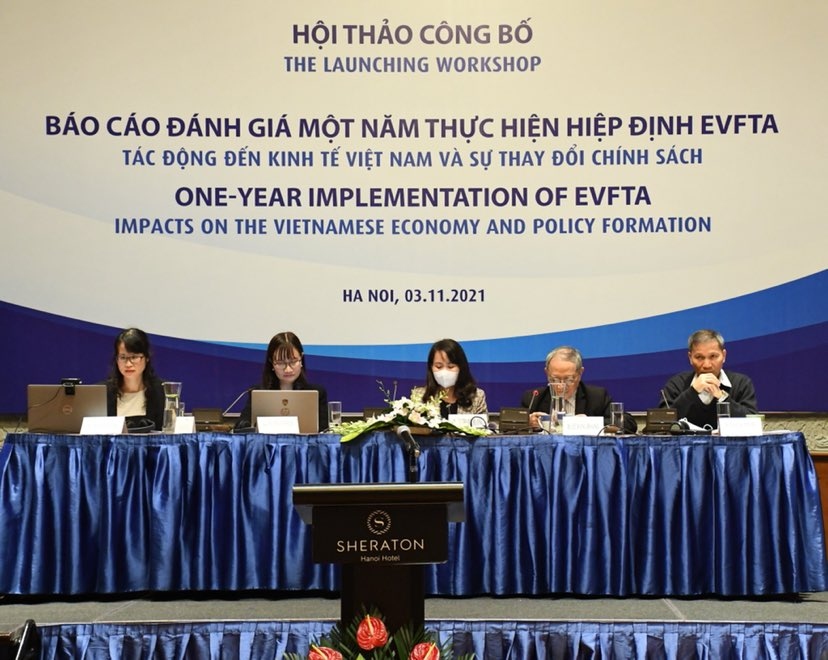Removing hurdles a must to capitalise on benefits of EVFTA
Vietnam should be striving to fine-tune the legal system in consistence with commitments set out in the EU-Vietnam Free Trade Agreement (EVFTA), reduce customs procedures and non-tariff barriers for imported goods to utilise benefits from the trade pact, according to industry insiders.

This assessment was made by various economists at a launching workshop aimed at unveiling the report titled “One year implementation of EVFTA: Impact on the Vietnamese economy and policy formation”, with the event being held via both direct and online platform on November 3.
The webinar was co-hosted by the Vietnam Institute for Economic and Policy Research (VEPR), the VNU University of Economic and Business and the Konrad - Adenauer Stiftung Institute (KAS) in Vietnam.
Upon addressing her opening speech, Assoc. Dr. Nguyen Anh Thu, director of the VERP, emphasised that one year on from the EVFTA coming into force, Vietnamese export turnover to the EU market surged by 6.2% on-year to reach US$39.8 billion as of July 31.
The total import turnover from the bloc to the country throughout the reviewed period therefore amounted to US$16.51 billion, marking an annual rise of 24%.
The EU has been among the leading foreign investors in the nation, with a cumulative registered capital of US$22.27 billion, thereby accounting for 5.52% of total investment capital with 2,249 projects by the end of September. In addition, the Netherlands and Germany make up the two EU largest investors in the Vietnamese market.
Thu went on to point out that the Vietnamese legal system has been gradually changing in a way to meet the requirements of the trade pact, with a specific focus on law enforcement, especially in the fields of intellectual property, labour rights, and environmental protection.
Despite this, the country has been facing many internal and external challenges due to its trade costs being relatively higher than those in ASEAN member countries, she said. Indeed, the nation could potentially face future competitive challenges from other countries in the region that have negotiated bilateral FTAs with the EU.
Furthermore, local businesses have encountered numerous difficulties in production costs, the tightening of export regulations, and high logistics costs due to the negative impact of the COVID-19 pandemic.
Most notably, the overuse of pesticide residues on fruit and vegetable products is set to be the most significant barrier for domestic firms exporting agricultural products to the EU market.
Domestic firms must therefore actively strengthen their capacities and enhance the product quality for a deeper participation within the global supply chain, Thu noted.
Meanwhile, Jean Jacques Bouflet, vice chairman of the European Chamber of Commerce in Vietnam (Eurocham), underlined the need to speed up the implementation of FTAs to allow the country’s better involvement within the global market and to increase its role in the global value chain.
This should be done alongside the intensification of the Advisory Council for Administrative Procedures Reform (ACAPR) which shows the country’s willingness to remain a vibrant actor of the globalisation process, he added.
The Eurocham representative also analysed several barriers in terms of the smooth implementation of the EVFTA, including complicated administrative procedures, technical barriers to trade, and lack of understanding of the trade pact.
He advised Vietnamese businesses to try to improve their product quality, streamline their processes, and become more attractive in global markets, all of which can help both sides' firms benefit from preferential tariffs and privileged market access.

